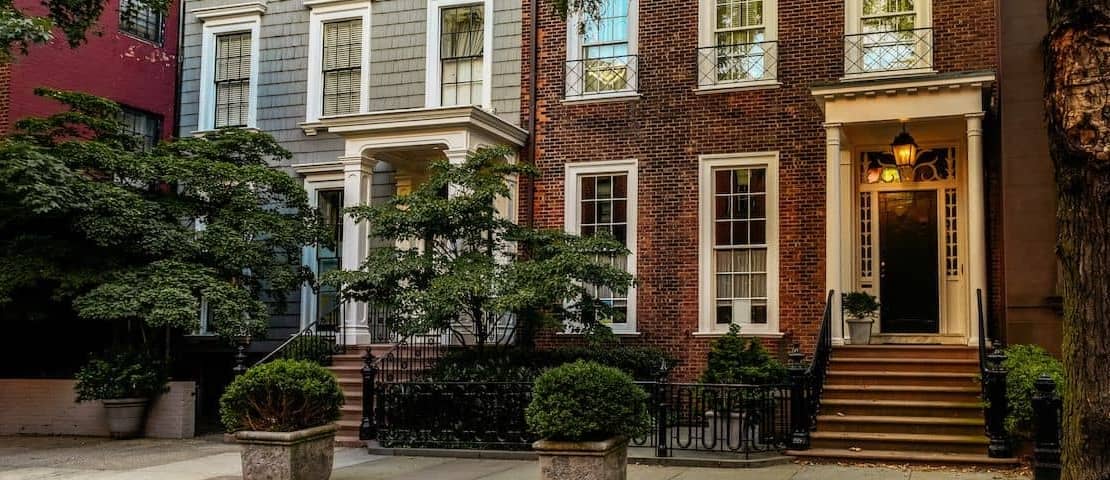
How To Balance The Costs Of A Good Home In A Good Neighborhood
Cathie Ericson4-minute read
UPDATED: April 18, 2022
There’s a mantra in real estate that only three things matter when you’re buying a house: Location. Location. Location. In other words, there’s really only onething that matters.
That’s why often when you’re discussing a home that seems relatively high priced for what you get, people will say, “But it’s in a good neighborhood.”
It’s easy to hear that and not understand what it means for your wallet, especially for a first-time home buyer. How do you know if the extra cost of that home is worth being “in a good neighborhood”? Let’s find out more about what to look for on your house hunt.
What Is A “Good Neighborhood”?
Usually the phrase means the home is in an “established” area. But besides age and stability, there are a number of features that “good neighborhoods” typically have in common. Here are a few to consider:
- Excellent schools, which are a consistent factor in whether people will buy a home in a certain neighborhood. Keep in mind that even if you don’t have kids, it should be something you consider for future resale value. You can search school districts here to find out more about areas you’re considering.
- Community amenities, which often include a neighborhood center, fitness and outdoor recreation facilities, shopping, entertainment and restaurants. Often more upscale communities attract similarly upscale options, which helps with the reputation of the neighborhood.
- Engrained communities, often including an active homeowners association, which will ensure that the common areas remain clean and well-manicured and that home owners follow rules regarding maintenance and exterior appeal.
- Low crime rates, which is obviously a key criteria. You can find out more about crime rates for various neighborhoods here.
And finally, a good neighborhood brings with it “bragging rights,” says REALTOR® Angela Hornburg, team leader at The Hornburg Real Estate Group in Dallas, Texas. In fact, she says that in addition to all those other factors, “One reason we see clients willing to take the plunge on the location is that they feel great saying that they live there.”
Looking To Buy
How Can You Get A “Great Neighborhood” House For A More Appealing Price?
Sure, you love the neighborhood, but your budget doesn’t love it quite as much. But even if it will be a stretch, it still might be possible to find a way in, with some of these tips.
One tried-and-true strategy is to look for a smaller home in the more desirable neighborhoods, says John Bodrozic, cofounder of HomeZada, a digital home management app. Conventional wisdom says to never buy the biggest or most expensive home on the block, and that means the opposite is good advice also – buying a more affordable home with that great location because the value of your home is supported by all the other better homes around yours, he points out.
Then over time you can make changes to your tastes. “If you remodel this home to match the other neighborhood homes, you are likely to see the payoff of the investment in appreciation since you got in at a more affordable price,” he says.
Another strategy to get the most out of a home in an established neighborhood is to purchase a house with timeless architecture and that needs little maintenance, which means you won’t have to invest as much on upkeep or to preserve a modern appearance.
Put another way, you want to avoid what Hornburg calls “a cosmetically obsolete home.”
“This is often an outdated exterior facade that cannot be changed or offset with paint, landscaping or lighting,” she says. That can affect your current enjoyment but can also spell trouble for resale. “The facades of homes do have an intangible effect on home values as well as days on market in a resale situation,” she says. Other features that can prove costly down the road are low ceilings or a floor plan that’s not practical.
“If a home like this is your only entree into a specific neighborhood, it may be positive if it's the right price, but be wary as sometimes emotions can overtake us. You may end up compromising and ending up with a house that’s more challenging to sell in the future.”
Balancing The Costs Of A Good Home In A Good Neighborhood
Another way to put your purchase into perspective is to figure out where costs might go down. For example:
- Your commute might be curtailed, potentially saving time and money.
- Your insurance premiums might go down in a safer area.
- You might not have to pay for private school for your kids if that was an option/necessity in a less desirable school system.
- You might be able to only have one car if everything is walkable and/or if public transportation is easily accessible.
While these aren’t all certainties, doing some math on expenses you might forgo in a different neighborhood can be an illuminating exercise.
The Bottom Line: Money Matters
Of course, the main reason you want a good neighborhood is because of the investment perspective, notes Hornburg. “Moving to an established community creates a safer investment as the year-over-year appreciation can be seen and studied through past numbers, whereas a newer community may still be uncertain,” she points out.
In other words, time—and reputation—are on your side.
Want more home-buying resources? Find out everything you need to know to start your hunt here.
Looking To Buy
Apply For A Mortgage Online
Cathie Ericson
Cathie Ericson writes about personal finance, real estate, small business, education, retail/ecommerce and other topics for a host of brands and websites. Her work has been featured on major media websites, including U.S. News & World Report, Forbes, Business Insider, The Oregonian, Industry Dive, Boston Globe, CNBC, MSN.com, Realtor.com and Yahoo Finance, among many others. Find her @CathieEricson.com.
Related Resources
Viewing 1 - 3 of 3